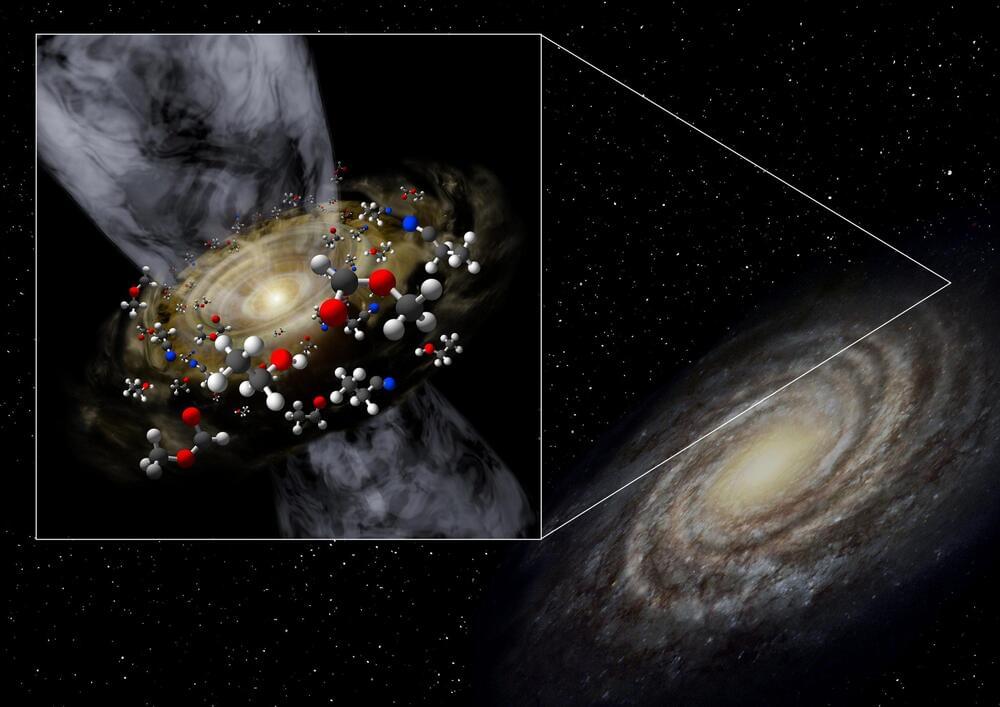For the first time, astronomers have detected a newborn star and the surrounding cocoon of complex organic molecules at the edge of our Galaxy, which is known as the extreme outer Galaxy. The discovery, which revealed the hidden chemical complexity of our Universe, appears in a paper in The Astrophysical Journal.
The scientists from Niigata University (Japan), Academia Sinica Institute of Astronomy and Astrophysics (Taiwan), and the National Astronomical Observatory of Japan, used the Atacama Large Millimeter/submillimeter Array (ALMA
The Atacama Large Millimeter/submillimeter Array (ALMA) is the largest ground-based facility for observations in the millimeter/submillimeter regime in the world. ALMA comprises of 66 high-precision dish antennas of measuring either 12 meters across or 7 meters across and is an international partnership between Europe, the United States, Japan and the Republic of Chile.
